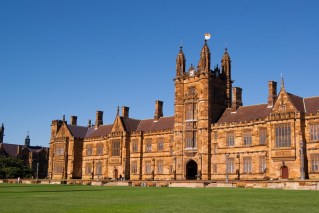The coronavirus pandemic has left the aged-care sector “traumatised”, “confused” and in need of urgent reforms, a special Royal Commission report says, with depression and suicide risk among older residents spiking.
The Royal Commission into aged care quality and safety found, despite federal government protestations, “there was not a COVID-19 plan devoted solely to aged care”.
It has been a finding seized upon by critics to slam the government’s response to the pandemic.
“The Royal Commission’s special report on COVID-19 confirms the Morrison government had no plan for COVID-19 in aged care,” shadow aged care minister Julie Collins said.
“The foundations of our country’s aged-care system have buckled under the pressure of a deadly disease and the Morrison government did not do enough to stop it.”
Called in 2018, the aged-care royal commission shifted its recent hearings to focus on the coronavirus pandemic tearing through nursing homes in Victoria and NSW.
According to federal health department statistics, at least 665 people have died from COVID in aged care since March.
There was an additional 4000 cases among staff and residents.

Aged care has been left “traumatised” by COVID. Photo: Getty
On Thursday, the Royal Commission released a special report focusing entirely on the COVID response in the aged-care sector, following an interim report in 2019.
It made six recommendations, which commissioners said needed urgent implementation.
“The interim report noted that the aged-care workforce is under-resourced and overworked. It is now also traumatised,” the report stated.
The Royal Commission said residents and families “need immediate support and action”, and “governments need guidance”.
COVID affects older people more seriously at a higher rate.
The Royal Commission said, “never before has the aged-care sector in Australia faced a challenge like COVID-19”.
The report called Australia’s COVID death rate “low by international standards”.
On measures of aged-care deaths specifically, “Australia has performed relatively well”, noting nations like France, the United Kingdom and Canada had far higher mortality rates.
However, the Royal Commission made the significant finding that there was no specific federal aged-care plan to deal with COVID – only that the government had “sought to adapt and apply” its wider national COVID-19 strategy to the aged-care sector.
“Confused and inconsistent messaging from providers, the Australian government, and state and territory governments emerged as themes in the submissions we have received on COVID-19,” the report said.
“All too often, providers, care recipients and their families, and health workers did not have an answer to the critical question: Who is in charge?”

Aged Care Minister Richard Colbeck said the government supported the recommendations. Photo: AAP
Whether there was a specific COVID aged-care plan had been the subject of heated conflict between the Coalition government and the Labor opposition – the commission noting “much was made during the hearing” over that question.
Earlier, scathing evidence tendered to the Royal Commission said lessons from Sydney aged-care outbreaks were not taken through to Melbourne.
The report reiterates it was “unclear whether the lessons learnt from those outbreaks were shared widely before community transmission put people living and working in aged care in Victoria at risk”.
Recommendations made by the Royal Commission included:
- Publishing a national plan for COVID in aged care, and an aged-care advisory board
- Developing a plan to ensure aged-care residents can receive visitors again, citing mental health concerns
- Increase Medicare provision of allied health, including mental health, in facilities, and
- Better training in infection control and personal protective equipment for employees.
The report made much of the mental health effects on residents of isolation, both during facilities being locked down as part of normal safety practices but also during periods when staff shortages meant elderly people were left alone in their rooms for long periods of time.
The Royal Commission noted “a large increase in depression, anxiety and confusion in residents”, as well as a heightened suicide risk.
One case study cited a man with motor neurone disease who “was non-verbal and relied on physical touch to communicate” being isolated in his room.
His daughter, identified as UY, said he “could not understand why he could no longer touch and hug his family, and deteriorated
rapidly”.
He “went to sleep and did not wake up again” two months after his facility went into lockdown. He died weeks later.
“I believe Dad gave up wanting to live because his family support and connection was disconnected,” UY said.

The majority of Victoria’s COVID deaths have been linked to outbreaks at aged-care homes. Photo: AAP
Upon the report’s Thursday afternoon release, Aged Care Minister Richard Colbeck and Health Minister Greg Hunt quickly released a statement saying the government committed to implementing all six recommendations “and has already made substantial progress on four”.
“We think they are quite constructive,” Senator Colbeck said at a press conference in Tasmania.
Senator Colbeck said the government would commit $10.8 million to enhance the training of workers in the sector, in response to the recommendation that infection control be improved.
He said about $40 million would be invested in meeting the royal commission’s recommendations.
Let’s face it, the Aged Care Royal Commission special report recommendations really are the bare minimum of what the Government should have already done when this pandemic started.
It’s shambolic there is no national coordinating body to address the COVID crisis in #agedcare https://t.co/ynxixfydxG
— Rachel Siewert (@RachelMSiewert) October 1, 2020
However, Greens senator Rachel Siewert said the recommendations were the bare minimum of what should have already been implemented.
Ms Collins, in her response, said the government “failed to have a proper plan”.
“Australians are owed action,” she said.
“The Morrison government must implement the Royal Commission’s recommendations and it must be transparent about progressing them.”









